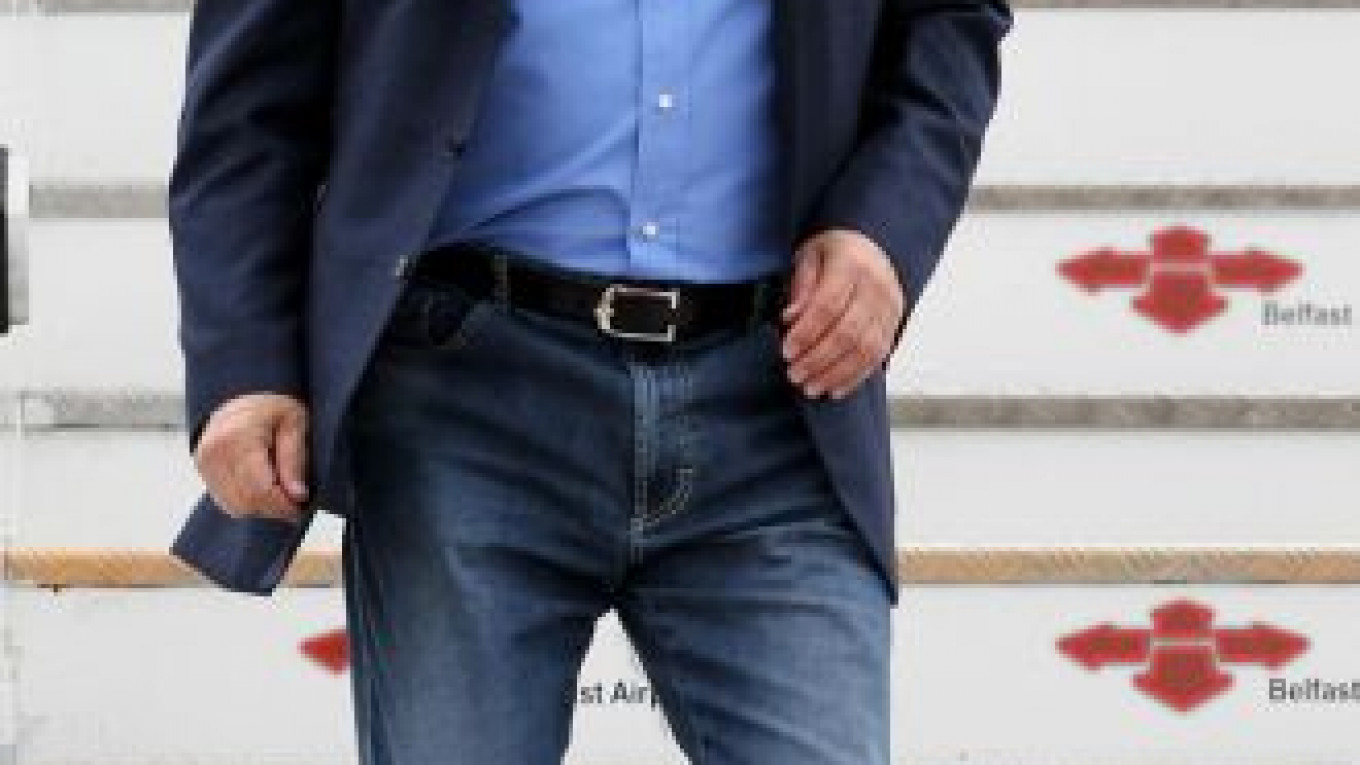The G8 summit opened Monday at the remote Lough Erne resort in Northern Ireland with "hard talks" expected in the late evening between the Russian and U.S. president on the Syria conflict.
The summit follows on the heels of the U.S. announcement last week that it would arm the Syrian opposition — an initiative Russia strongly opposes.
The resulting schism between Russia and the West reared its head on the eve of the summit, when a meeting in London between U.K. Prime Minister David Cameron and President Vladimir Putin seemed to rule out the possibility of a common decision.
Putin rebuked the U.S. plan to supply the opposition with guns, saying they would be arming people who "kill their enemies and eat their organs." He was referring to a video released earlier that showed a Syrian rebel eating the intestines of a government soldier after killing him.
"Are these the people you want to support? Are they the ones you want to supply with weapons?" Putin asked.
The U.S. said last week that it had received proof that the Syrian government had used chemical weapons against rebels, leading to some 150 deaths. Russia said that information was false.
Moscow said Monday that it would not allow Western countries to set up a no-fly zone over Syria. Foreign Ministry spokesman Alexander Lukashevich said it was a fundamental decision, as a no-fly zone would be a violation of international norms. A no-fly zone regime would prevent the Syrian government from using an airstrike to attack terrorists.
Canadian Prime Minister Stephen Harper strongly criticized Putin for his position on Syria, noting that Russia was not a full-fledged member of the G8.
On the eve of the G8 summit, while Harper was in Dublin meeting with the Irish prime minister, he told reporters: "This is G7 plus one. We in the West have a very different perspective on this situation. Mr. Putin and his government are supporting the thugs of the Assad regime for their own reasons that I do not think are justifiable, and Mr. Putin knows my view on that."
It is still unclear, however, whether the U.S. or any other Western country has taken concrete measures to supply the rebels with weapons.
British media reported that the G8 was a key opportunity for Cameron, who is hosting the summit, to pressure Putin on the Syria issue, as he sought guarantees that the peace conference in Geneva would be held.
The planned Geneva conference was a joint initiative of Russian Foreign Minister Sergei Lavrov and U.S. Secretary of State John Kerry aimed at making the Syrian government and representatives of the opposition sit down at the negotiating table.
The conference, initially scheduled for June, is now expected to be held next month.
Harper said Sunday that Russia's stance would not allow for a decision to be made at the G8, but some British politicians echoed Putin's point of view. In a column in the Daily Telegraph, the mayor of London and Cameron's opponent in the Conservative party, Boris Johnson, called the rebels "maniacs" and said sending arms to the Syrian opposition would be "total madness."
Yevgeny Satanovsky, head of the Middle East Institute, a think tank specializing in Middle East studies, said the Putin-Obama meeting was unlikely to bring about any changes in the two countries' stances, as their aims in the Middle East are too different.
He also said that whatever decision the Western countries made, it would not lead to any serious confrontation between Russia and the U.S.
Russia's Federal Service on Military and Technical Cooperation released a statement Monday that would seem to confirm Satanovsky's prediction. According to the statement, Russian-U.S. military cooperation is expected to grow, and the two countries agreed on Sunday that Russia would supply helicopters to the U.S. army in Afghanistan, "which is one more step towards the Russian-U.S. joint effort to fight terrorism."
Alexander Mikheyev, deputy head of Rosoboronexport — the Russian state agency that will supply the helicopters — told Interfax that the deal with the U.S. Department of the Army was made for 30 helicopters. The price of the deal hasn't been announced yet.
"The Geneva conference will be further demonstration that there is no Cold War between Russia and the U.S., and that the aim of the conference was to chat, not to stop the conflict," Satanovsky told The Moscow Times by phone.
But the British tabloid The Sun said Monday that the friction between Russia and the U.S. about to be unleashed at the summit had nothing to do with the Syria issue.
Citing an anonymous source, the paper said both Putin and Obama had reserved the same gym in the hotel where all the leaders stay during the summit, but the Russian side had to back down because Obama had requested it first and neither Russia, nor the U.S. wanted to do morning exercises together.
Contact the author at [email protected]
A Message from The Moscow Times:
Dear readers,
We are facing unprecedented challenges. Russia's Prosecutor General's Office has designated The Moscow Times as an "undesirable" organization, criminalizing our work and putting our staff at risk of prosecution. This follows our earlier unjust labeling as a "foreign agent."
These actions are direct attempts to silence independent journalism in Russia. The authorities claim our work "discredits the decisions of the Russian leadership." We see things differently: we strive to provide accurate, unbiased reporting on Russia.
We, the journalists of The Moscow Times, refuse to be silenced. But to continue our work, we need your help.
Your support, no matter how small, makes a world of difference. If you can, please support us monthly starting from just $2. It's quick to set up, and every contribution makes a significant impact.
By supporting The Moscow Times, you're defending open, independent journalism in the face of repression. Thank you for standing with us.
Remind me later.






